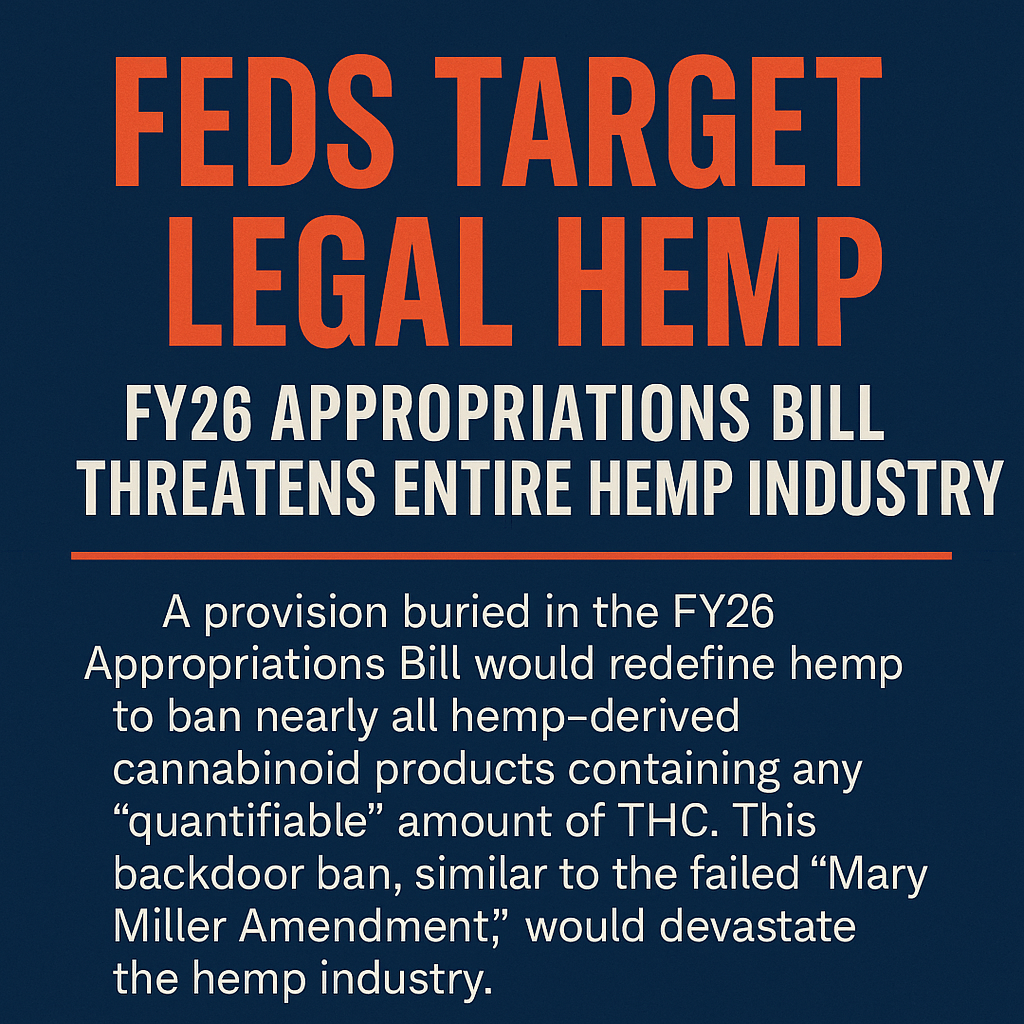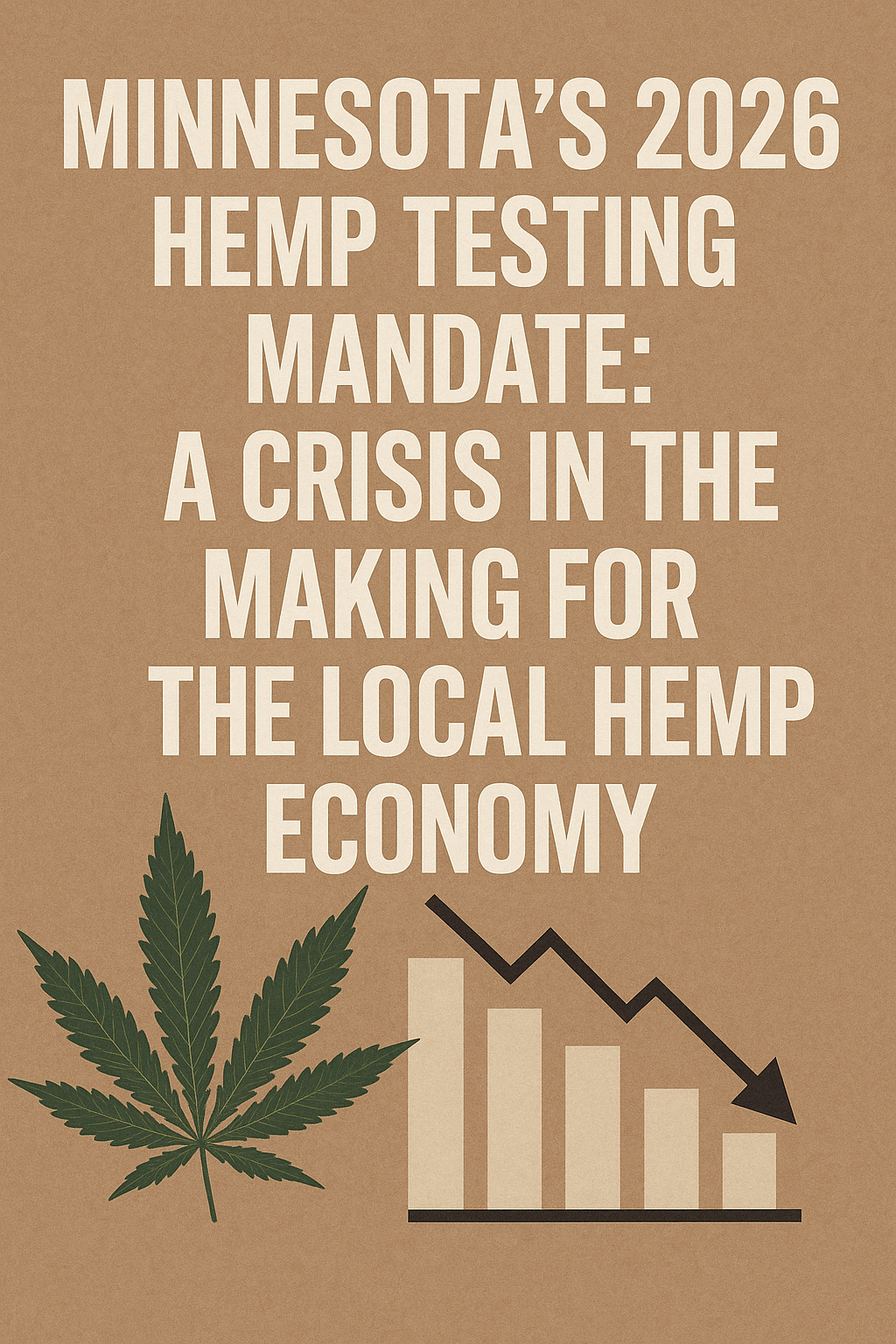If you're doing business in Minnesota’s hemp or cannabis industry, you know one thing’s for certain: nothing stays the same for long. Just when you’ve adjusted to the latest regulations, a new mandate rolls in—bringing fresh compliance headaches and rising costs.
This September, two major testing requirements are being added for hemp-derived edible products:
-
Homogeneity testing (5–10 unit sampling)
-
Terpene testing (for any product with added or labeled terpenes)
And in a move that caught many businesses off guard, all THC-containing topicals are now illegal outside of the state’s medical dispensary system.
Let’s break down what’s changing, what it means for your business, and why—while we strongly support product consistency and consumer safety—some of these rules may be setting up brands, especially small businesses, for serious challenges.
We Support Product Consistency and Safety Standards
Before we dive into the pain points, let’s be clear: we’re all for accurate labeling, reliable dosing, and transparent testing. Consumers deserve to know exactly what they’re putting in their bodies—and businesses should be held accountable to back up product claims with science.
Consistency standards like homogeneity testing are a welcome evolution. They ensure that what’s listed on the label actually reflects what’s in each serving. That kind of integrity builds trust, protects consumers, and uplifts the entire industry.
But even well-intended rules can have unintended consequences—especially when applied without consideration for scientific limitations or operational realities.
New Rule 1: Homogeneity Testing
Starting in September 2025, Minnesota will require homogeneity testing for any product with defined servings (like gummies, chews, mints, beverages etc.). This means labs must test 5 to 10 individual units from each batch to ensure that cannabinoids like THC or CBD are evenly distributed across servings.
We kind of support this but not the cost.
Accurate dosing is non-negotiable for consumer safety and product reliability. Whether it’s a 2mg microdose or a 10mg therapeutic gummy, consumers should know that each bite delivers the promised potency—not more, not less but a ratio
However, there are real implications here:
-
Testing costs will increase significantly, as labs must run multiple samples per batch.
-
Production processes may need to be upgraded to meet stricter consistency thresholds.
-
Smaller businesses will be hit hardest, as each SKU will now incur higher testing volume and potential rework if a batch fails.
Consistency? Yes. Financial strain without support? That’s where we draw the line.
New Rule 2: Terpene Testing for Edibles – Problematic in Practice
Here’s where things get more complicated—and more controversial.
If your product contains any added terpenes, or if your label references terpene content or terpene-related effects (such as "relaxation," "focus," or even “strain-inspired”), you’ll be required to submit that product for terpene concentration testing.
While the goal is legitimate—transparency and accuracy—this rule completely overlooks a critical scientific problem:
Most terpene testing methods do not work well on edible products.
Why? Because:
-
Terpenes are volatile—they degrade with time, heat, and exposure to air.
-
In edibles, they often bind with sugars, fats, or other ingredients, making accurate extraction and analysis extremely difficult.
-
Labs across the country have publicly stated that terpene results in gummies and baked goods are often unreliable or inconsistent.
And yet, Minnesota will now require reliable test results for something that may not even be measurable under current lab technology.
This means:
-
Businesses will pay for testing that may return inconclusive or inaccurate data.
-
Some labs may refuse to test terpene levels in edibles at all.
-
Others may test and fail your batch—not because your formulation is off, but because science hasn’t caught up to the regulation.
This isn’t a theoretical concern. It’s a real-world bottleneck that’s going to cost thousands in wasted product, delayed launches, and repeated lab fees.
Again, we support transparency. But requiring terpene testing for edibles—before the science is ready—isn’t creating clarity. It’s creating chaos.
Testing Costs Are Skyrocketing
Between homogeneity, terpene panels, and the already-mandated checks for:
-
Cannabinoid potency
-
Stability
-
Heavy metals
-
Pesticides
-
Residual solvents
-
Microbiological contaminants
-
Mycotoxins
-
Foreign materials (like catalysts used in synthesis)
…the cost of getting a single edible SKU into the Minnesota market is doubling or even tripling.
Many small- to mid-sized manufacturers will have no choice but to:
-
Cut SKUs
-
Reduce product variety
-
Raise retail prices
-
Or exit the Minnesota market entirely
And beginning January 1, 2026, all testing must be done in-state, at a lab licensed by the Office of Cannabis Management (OCM). No more out-of-state labs that may have been more affordable or specialized.
This means less flexibility and fewer options—all while the compliance bar keeps moving higher.
The THC Topical Ban: Nonsensical and Harmful
Let’s move on to the most baffling policy update: all THC-containing topicals are now banned from general retail.
According to Minnesota’s new rules:
-
Only 0.0% THC topicals are allowed in the public market
-
Anything containing even trace amounts of THC is now reserved for medical dispensaries only
-
That includes creams, balms, massage oils, and roll-ons that were previously compliant under the federal 0.3% THC limit
This is a devastating blow to a product category that is:
-
Non-intoxicating
-
Widely used for pain relief and recovery
-
Supported by scientific research and massive consumer demand
Banning full-spectrum topicals from the general market does not protect consumers—it limits access to products that work, especially for those managing chronic pain, inflammation, or localized discomfort.
It also creates an artificial divide:
-
You can buy a 5mg edible at your neighborhood shop
-
But you can’t buy a 0.2% THC balm for your sore knee—unless you’re enrolled in the state’s medical program
It’s regulatory whiplash—and it hurts the same consumers the rules are supposed to protect.
How to Adapt (Even if You're Exhausted)
We get it. These changes are exhausting. But here’s what businesses can do now:
1. Review and Adjust Your Testing Budget
If you haven’t already, now is the time to reforecast your testing expenses. Add terpene and homogeneity testing for each edible SKU, and start baking in 50–100% increases in testing costs.
2. Reevaluate Terpene Use and Labeling
If your product’s terpene level isn’t high enough to test reliably—or if you’re using terpenes for flavor but not for effects—consider removing terpene claims from your labels.
You may still use terpenes for flavor/aroma purposes, but if they’re not listed or promoted on the packaging, you may be able to avoid triggering the testing requirement.
Work with your compliance team or legal advisor to find the best path forward.
3. Make a Decision on Topicals
You have two options:
-
Reformulate to remove all THC
-
Or discontinue THC-containing topicals entirely
Remember: even trace THC is now disqualifying. “Broad spectrum” or CBD-only is the only viable format if you’re staying in the Minnesota topical game.
Final Thoughts: We’re for Standards—But Let’s Get the Science Right
We want a professional, transparent, and trustworthy cannabis market in Minnesota. That means:
-
Rigorous testing
-
Clear labels
-
Consistent dosages
But it also means science-based implementation, accessible testing infrastructure, and fair regulatory pacing.
Minnesota’s hemp and cannabis businesses have stepped up again and again. We’ve adapted to each wave of change. But these new rules—especially the terpene testing mandate and THC topical ban—are creating confusion, financial strain, and a regulatory bottleneck that threatens to push good players out of the game.
We’re calling on the Office of Cannabis Management to:
-
Reassess terpene testing standards for edibles
-
Provide regulatory guidance that matches scientific capability
-
And allow full-spectrum topicals back into the adult-use hemp market
Until then, we’ll keep doing what Minnesota businesses always do—working harder, smarter, and together to keep this industry alive and thriving.








































